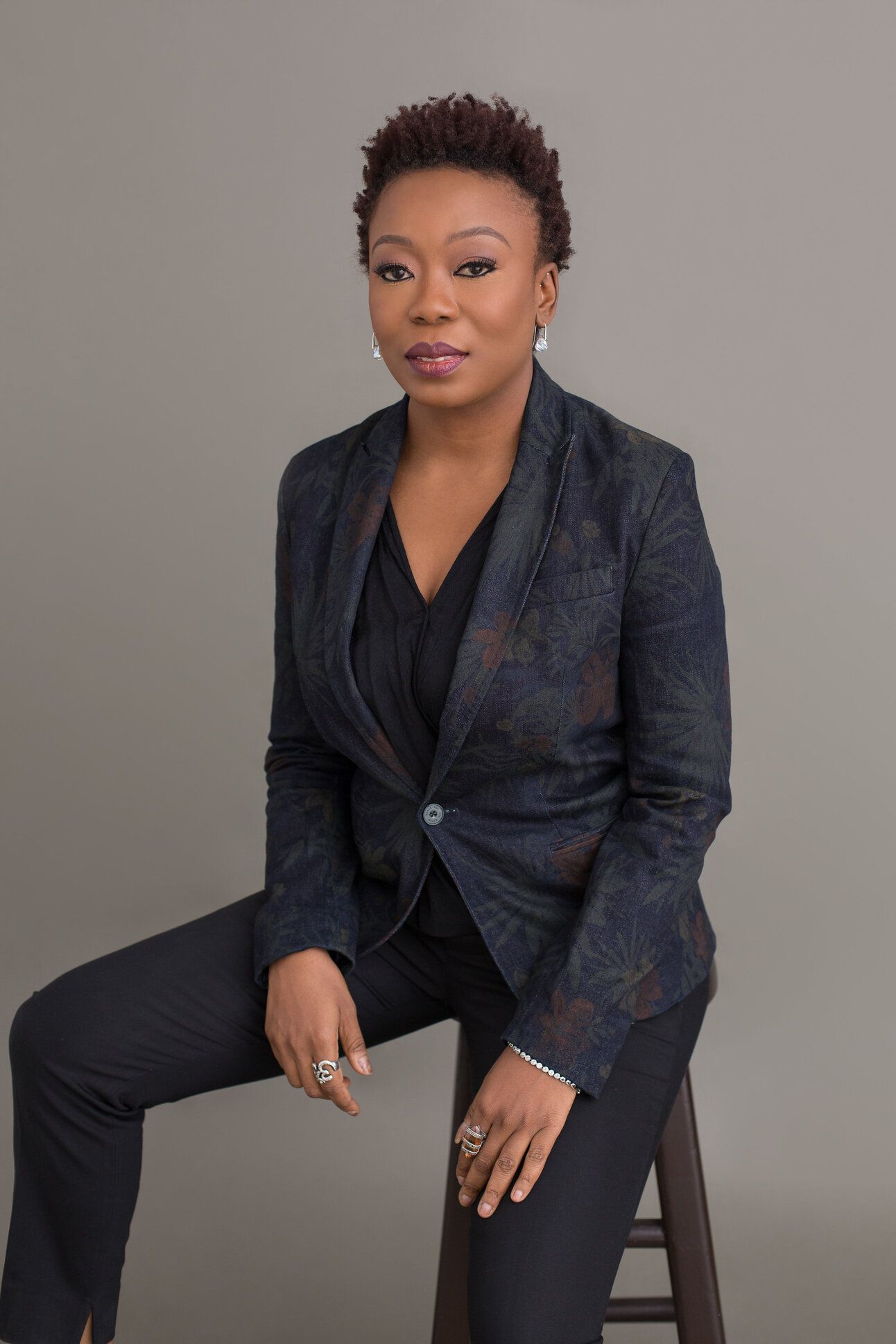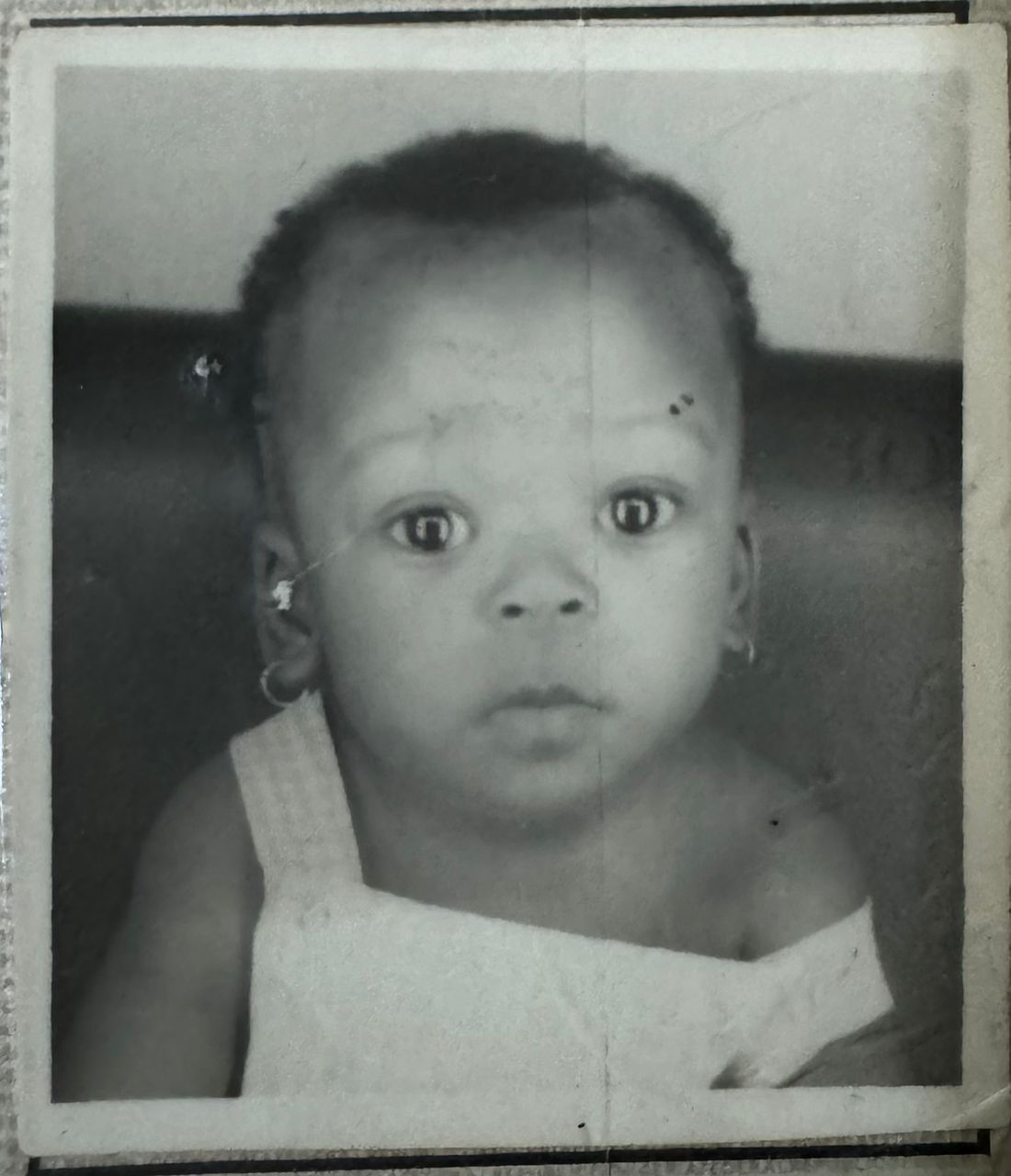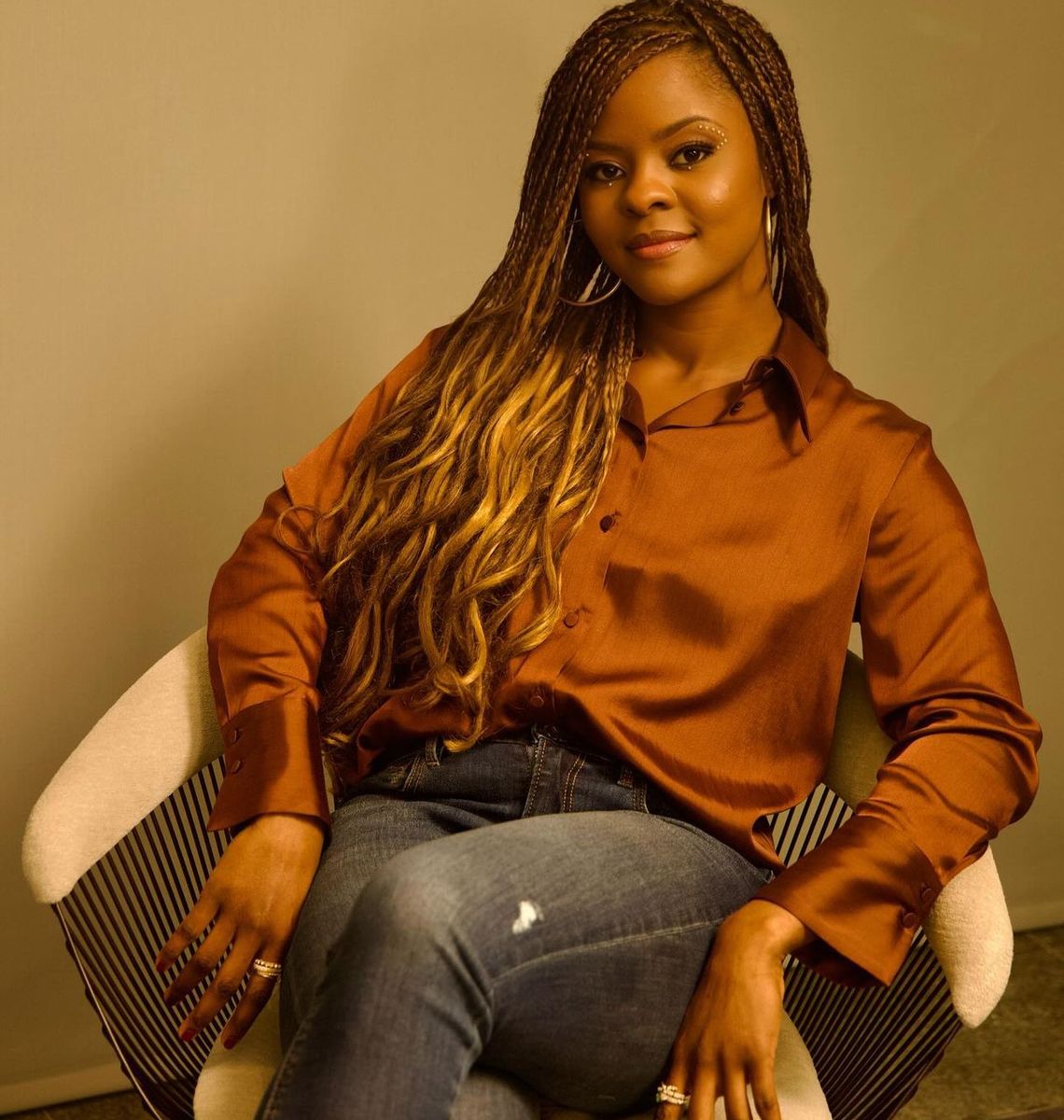
Adia Sowho
“It’s hot today”, says Adia Sowho as we walk down London’s Old Street, famous for street art and murals by renowned British artist Banksy.
Sowho is on sabbatical. She resigned from MTN in June after a three-year tenure leading the consumer business of the $4 billion company as its Chief Marketing Officer.
“I decided to take a sabbatical, though it’s not a real one, because I’ve been talking to founders daily,” she laughs as we settle down for our interview in the Japanese restaurant Wagamama.
“Have you had Sparkling Saké?” she asked. I shared that I’d had Saké but didn’t know it sparkled. “Perfect, you’re with me now. You’d like it,” she said before asking the waiter for two glasses.
This was supposed to be the first time Sowho took an extended time away from work in three years, but the demand for her time was no surprise to her or anyone familiar with her career.
Sowho cemented her reputation as an operator’s operator – scaling and transforming big companies like Etisalat, Migo, Thrive Agric, and MTN, roles that earned her the respect and admiration of industry peers. But before helping people build their companies, she attempted to build hers.
“For the longest time, I used to say I could make anybody else’s idea bigger because I couldn’t find any of my own.” She says. “I tried to start a software business in Nigeria after moving back to the country at 30 from the US. This was before venture capital was a thing, and the business failed quickly.”
Like most serial entrepreneurs, she figured out the problem. “I didn’t have a good framework for deciding what idea I would be completely possessed by. As a founder, there has to be an almost infinite conviction. You need to believe that what you’re doing is right and you’re the best person to do it. It took me a long time to get there.”
And now, there’s nothing left to prove. She established her legacy when she took extreme ownership to help bring agriculture startup Thrive Agric back from the brink of failure after Kola Aina called her to support – leading it to become a $100 million company.
Then, she replicated that success at MTN and led its data business to a record 50% year-over-year growth, subsequently becoming the first Nigerian telco to launch 5G.
A track record like that offers its vessel the confidence to do more. Be more.
“I have a clearer understanding of who I am.” She says. I am more comfortable building things. I am clear on what I’ll create and how to do it, especially now that I’m considering my future.”
It makes things exciting. “I know my secret sauce and trust myself,” she adds.
Owning Who You Are
Growing up in Southern Nigeria as the first daughter with three younger brothers shaped Sowho’s extroverted personality. “I’m a typical South-South woman, but people who are not from the South don’t understand what that means”.
“In Lagos, where I live, people see me as an anomaly because I’m direct. So, I learned to modulate my personality based on who I’m speaking to”.
The bring-your-whole-self-to-work shtick is not as universal as it once was. Nowadays, a measured version of your personality is preferable in corporate spaces.
“I’m an ENTJ, nicknamed the commander in the Myer Briggs Personality Test. Do you know your letters?” she asks. “I used to,” I respond.
“A commander in a skirt is not something people process easily at work, but I’m not a commander by choice. I’m a commander by culture and upbringing”. “I have people at home like me, so being assertive wasn’t an anomaly, which is why I’ve always felt comfortable in boardrooms. It’s how I grew up.”
The bigger picture was learning to build trust with her teams and applying the lessons she’d learned from the senior colleagues she admired in her career. It helped her be a better boss.
“Trust is important to me. Knowing who you are is important, too. It became easy for me to understand people better in the workplace. Personally and spiritually, I start by trusting people and creating safe spaces to build trust while working with people. That’s a great way to set up a team for success”.
Frameworks are Essential

Sowho’s playbooks are famous in Nigeria’s tech ecosystem.
She’s advised startups on building products by understanding their competitive edge.
“Learning to ask the right questions is very important, and this can be applied through life.”
She stressed that some startups don’t spend time thinking about and understanding the problem they’re trying to solve, but they choose to build anyway, which can lead to problems later on.
“I tell founders to understand their company’s resource-based view and strategy. I ask them, what’s the key resource that gives your company a competitive edge? Because a well-built company should contribute to that resource in some shape or form daily.”
When these lessons are applied, it’s an easier journey.
“But, people don’t spend much time thinking about this, and that’s fundamental to keeping your business alive and profitable.”
Embracing Hard Things
Sowho’s CV is a biography of an individual who enjoys solving complex problems.
From supercharging Migo’s lending business to 10,000 loans per day, working with founders Uka Eje and Ayodeji Arikawe to save Thrive Agric from the wrath of aggrieved customers to driving 85% of MTN’s consumer business, there’s a historical allure for pain.
“I completely submitted myself to the chaos”.
“When I joined Thrive Agric, a friend called to ask why I’m attracted to difficult things. He was surprised I was taking on that role after saying I’d planned to take things easy,” She confessed.
“To be honest, I’ve always wanted to solve problems. It’s a good skill to have.”
Sowho’s announcement as MTN’s CMO was a testament to her work as an operator. Industry insiders described her appointment as a no-brainer and a net good for MTN.
“MTN was one of the most challenging jobs I had, which is expected for a company that size. I was excited to get the job. It’s the biggest product job on the continent, and I thought about all the people that existed, lived, and died so I could get here.”
Getting the job was one thing. Preparing for Day One was another.
“I did a 10-day silent retreat before I resumed to prepare for the role. I had clarity on the goals I wanted to achieve and the time it would take to achieve them. In the end, I was pleasantly surprised and grateful for the opportunity and what we achieved during my time.”
Overcoming Detachment & Becoming a Student of Stress
Yoga, silent retreats, and Whoop wearables rule the world.
Sowho admits that mindfulness, studying stress, and applying it to her daily life have improved the quality of her life.
“I’m optimising for great health and a regulated nervous system. I track my sleep with my Whoop, what I eat, and my heart rate.”
She reflected on her years as a yoga teacher and what that practice taught her about managing stress.
“I used to be a yoga teacher. I know at any point that my body and spirit are sensitive to stress, and I know my role in choosing stress. I make micro-decisions every day to avoid stress – my tone of voice is a choice, what I wore today is a choice, walking to this restaurant was a choice – these are habits I’ve built that make my life easy.”
In addition to geeking out about these conversations with close friends, a more vital mantra for Sowho is detachment, a by-product of years on the yoga mat.
“I practice detachment as a form of self-love. I try not to be attached to things or outcomes. Letting go of my desires is important. Christianity teaches you detachment, but yoga names it well. You have to detach. And I think sometimes desire can become too much of a driving force – and it shapes you, especially if you have a desire and don’t have the wisdom to understand whether that’s the right desire.”
Optimistic About the Future

Family and companionship are universal human desires, and some people do a better job at shaping expectations.
“Of course I want love. I want companionship. But I’m a work in progress, too. I’m working on myself until those things come.”
Sowho reiterated her need for detachment from desire and its weightiness on the soul if it’s not managed correctly.
“I discovered through prayer and my yoga practice that I was very controlling of myself, controlling my own experiences, and working a bit too hard to preempt the possibility of a negative experience. That had to change.”
These reflections felt like Sowho’s waiting to exhale moment. She did the work all these years and took on the pressure. And now, she’s flipped those lessons to prioritise her inner compass.
She’s transcended the chaos.
“Control takes too much effort. I’ve embraced just letting things flow.”
“I owe that to myself”.
